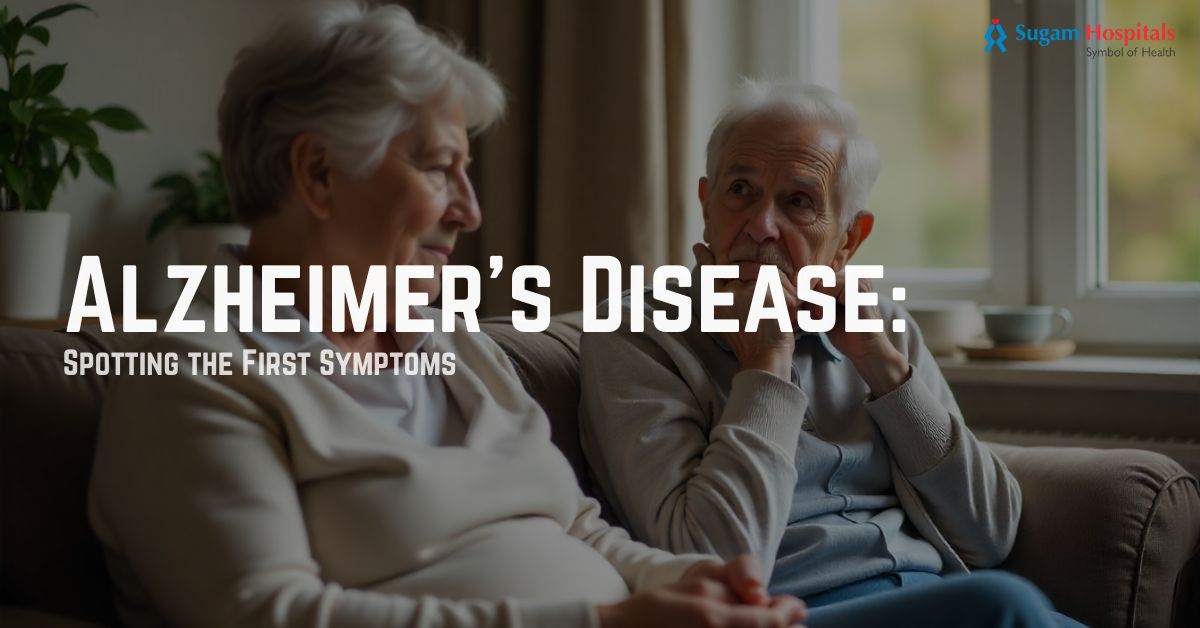Alzheimer’s Disease: Spotting the First

Alzheimer’s Disease: Spotting the First
October 8, 2025 by adminAlzheimer’s disease is among the top neurological disorders that cause changes in memory, logic, and the ability to perform everyday tasks. It gets worse step by step and that is the reason why most people think that the early symptoms are just signs of getting older or a little forgetfulness. Nevertheless, it can be a great step to identify the disease at the very onset. Early identification helps patients receive a supply of treatments that slow down the development of the disease, raise the quality of life, and give the families the certainty and the support they need.
This blog will familiarize us with the early symptoms of Alzheimer’s disease, the significance of the disease detection at its onset, and the ways in which a doctor’s timely intervention can facilitate the treatment.
Understanding Alzheimer’s Disease
Alzheimer’s disorder is a gradual brain malfunction that results from the aggregation of abnormal proteins, amyloid plaques and tau tangles that cause the breakdown of brain cells. These changes eventually interfere with memory, speech and thinking skills.
Currently, the precise cause is still a mystery, though it is known that the risk factors are multiple: age, heredity, cardiac condition and lifestyle habits such as nutrition and physical activity. Early detection of signs provides the opportunity for the disease to be controlled to some extent via drugs, mental activities, and facilitative therapies, despite being incurable.
Early Symptoms to Watch Out For
Signs of Alzheimer’s disease in the beginning are generally very unclear and mostly overlooked as ordinary forgetfulness. Nevertheless, there are a few symptoms that families must be vigilant about emphatically.
1. Memory Lapses That Affect Daily Life
The decline of short-term memory is among the very first symptoms of Alzheimer’s disease. The patients may forget about recent conversations, lose items or repeat the same questions without realizing it.
2. Difficulty Planning or Solving Problems
Distributing activities that require planning and organization such as paying bills, or using a recipe may become so difficult that the person may not be able to accomplish them in the end. People may also lose focus very quickly or finish routine work with a lot of effort and take a much longer time than usual.
3. Confusion About Time and Place
Confused about time and space is yet another prominent sign. Patients may forget where they are or how they got there, which may cause panic or disorientation.
4. Trouble Understanding Visual or Spatial Information
Juggling with distances, reading, or even face recognition, which were once simple tasks, now as the brain is having a hard time processing visual signals.
5. Misplacing Things and Forgetting Steps to Find Them
The person can be seen putting things in strange places such as hiding the keys inside the fridge and they lose the ability to trace their steps. After a while, this will be a source of daily frustration or distress.
6. Changes in Mood and Personality
Feelings swings, irritation, or isolation from society can be there even before memory loss is very noticeable. The patients may become apathetic about their favorite activities, discussions, or events that they used to like.
Why Early Diagnosis Matters
Detecting Alzheimer’s disease when it is still in the beginning stages will enable a treatment on time, emotionally getting ready, besides interventions in the lifestyle that can delay disease progression. Early diagnosis opens the doors for neurologists to:
- Begin the use of drugs that may help to retain cognitive abilities for a longer period of time.
- Insist patients to exercises for better memory and for them to be more independent in the daily routine.
- Instruct families about the security, daily practices and give emotional support.
On the other hand, early medical intervention creates the opportunity to identify other medical issues, for example, hypertension, diabetes, or depression, which can aggravate symptoms if they continue for a long time without treatment.
Expert Neurology Care at Sugam Hospital
At Sugam Hospital, we acknowledge that Alzheimer’s is a disease that not only forgets memory but also disrupts lives. Along with diagnostic facilities and management, guidance and support we help you through all stages of the condition, offering complete care to patients. The inclusive care we deliver through brain imaging, treatment tailored to individual patients, and other services is hand in hand with accuracy, empathy and the involvement of the family in care.
If you or your dear one is showing symptoms of gradual cognitive decline, as the best Neurology Specialist In Chennai we provide care and guidance that are focused on the management of symptoms and on the prolonging of the span of independence.
Living With Awareness and Support
The Early stage symptoms of Alzheimer disease may be quite indistinguishable from the signs of old age or stress, but still, awareness is the first step in trying to control the disease. Diagnosis at the earliest stage, following doctor’s prescriptions, and having a routine visit to the neurologist can have a very positive effect which may even go a long way in preventing the progression of the disease.
By proper medical attention and with the help of the patient’s loved ones, the patient will keep the decent and quality of life that they desire, and they will still be able to maintain their social relationships which are very meaningful.

